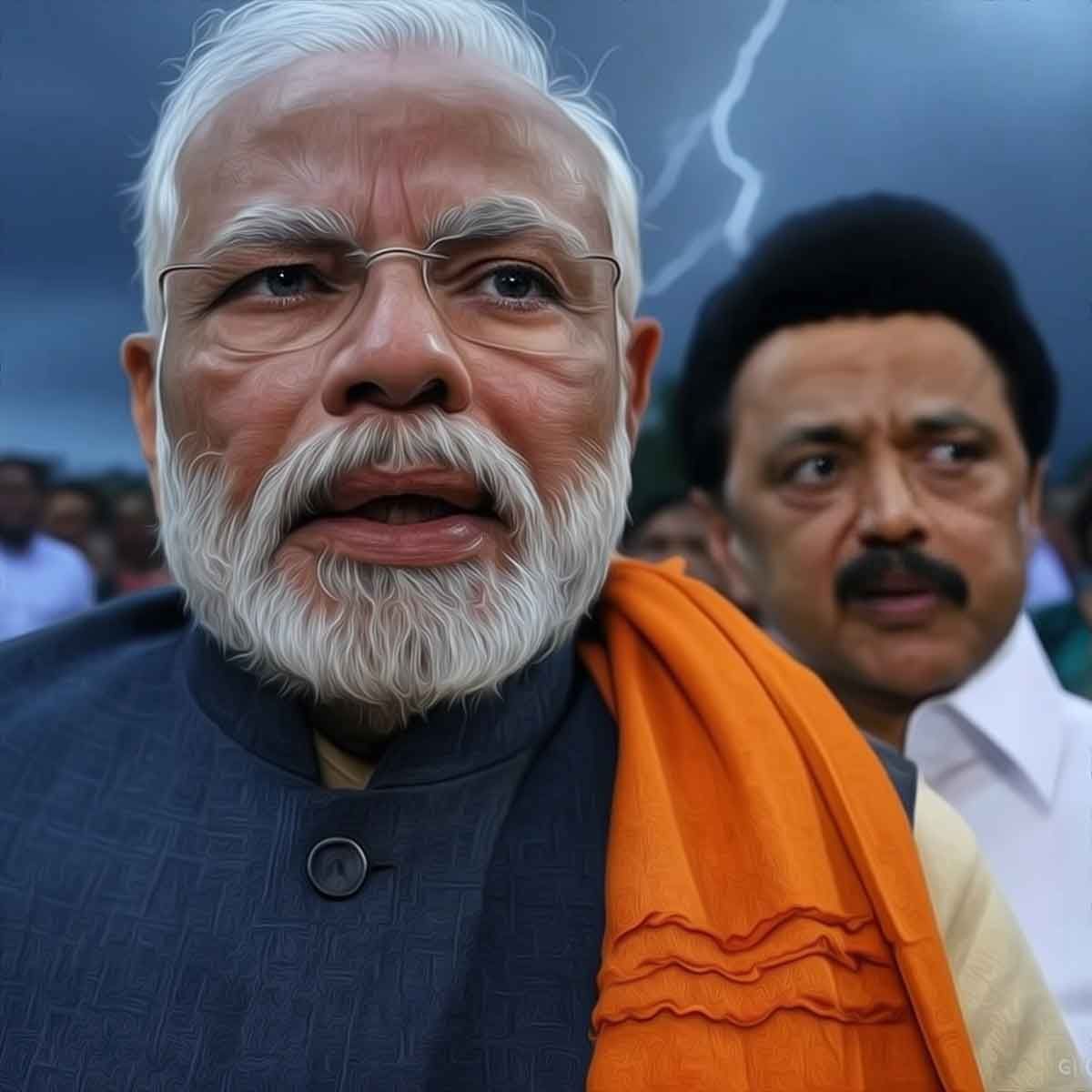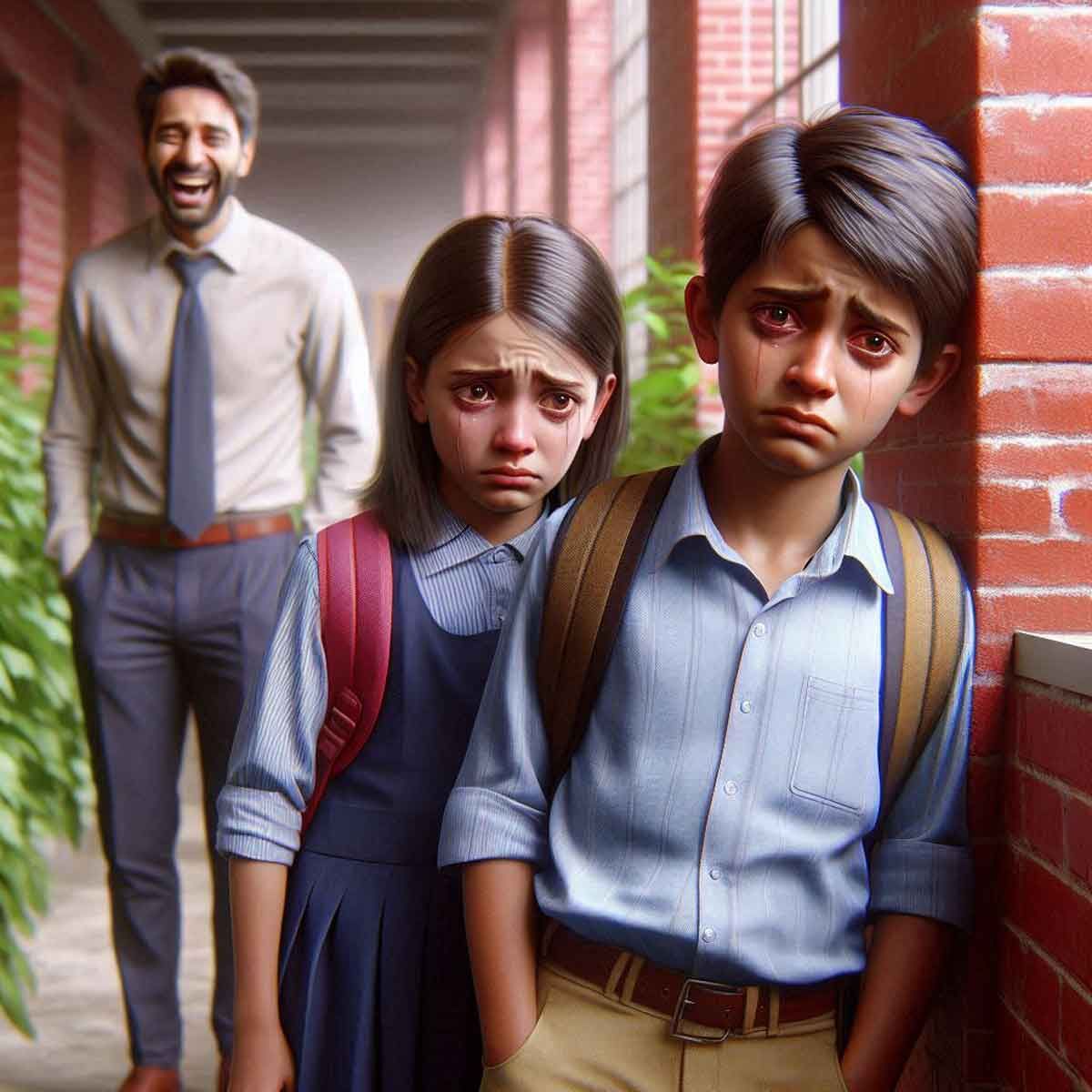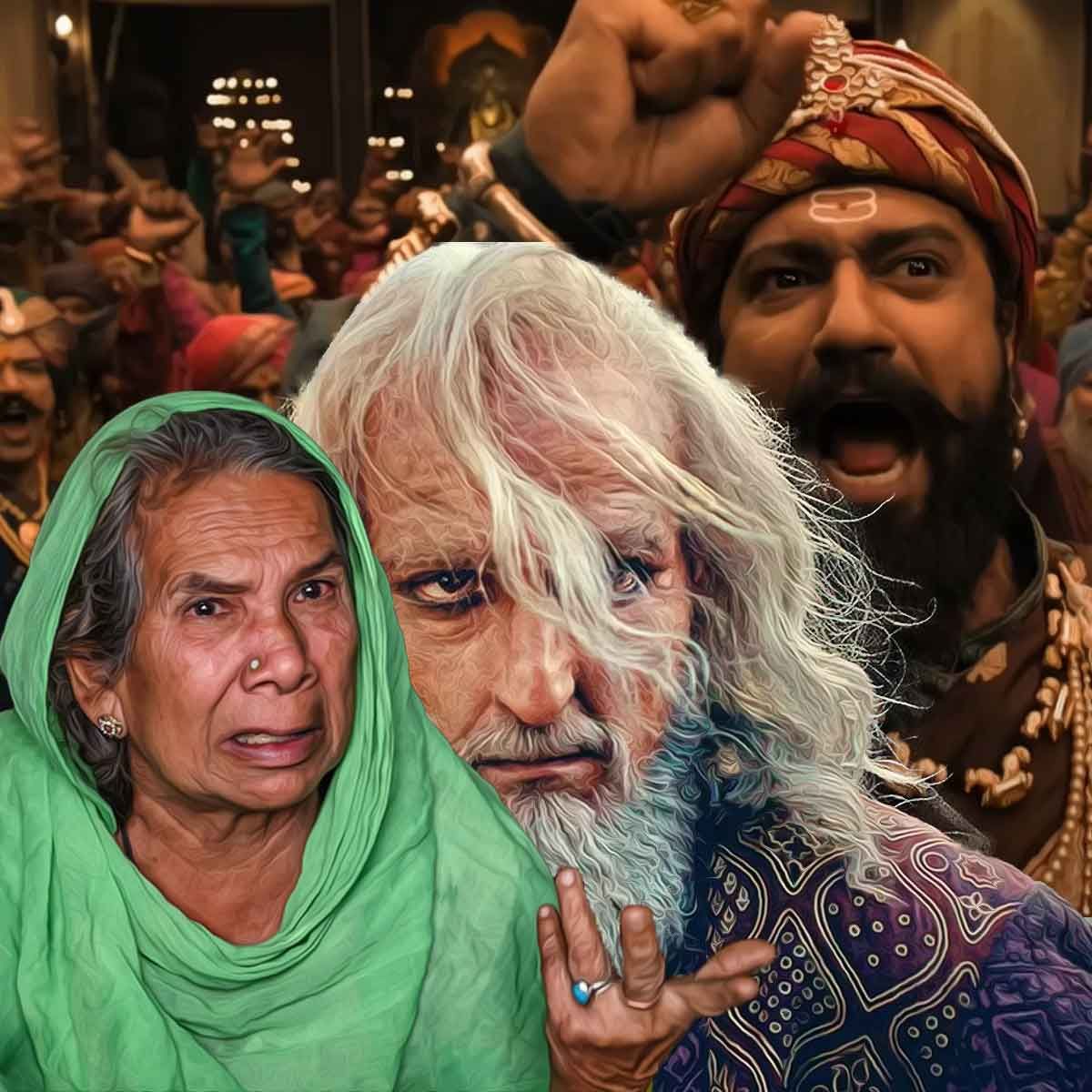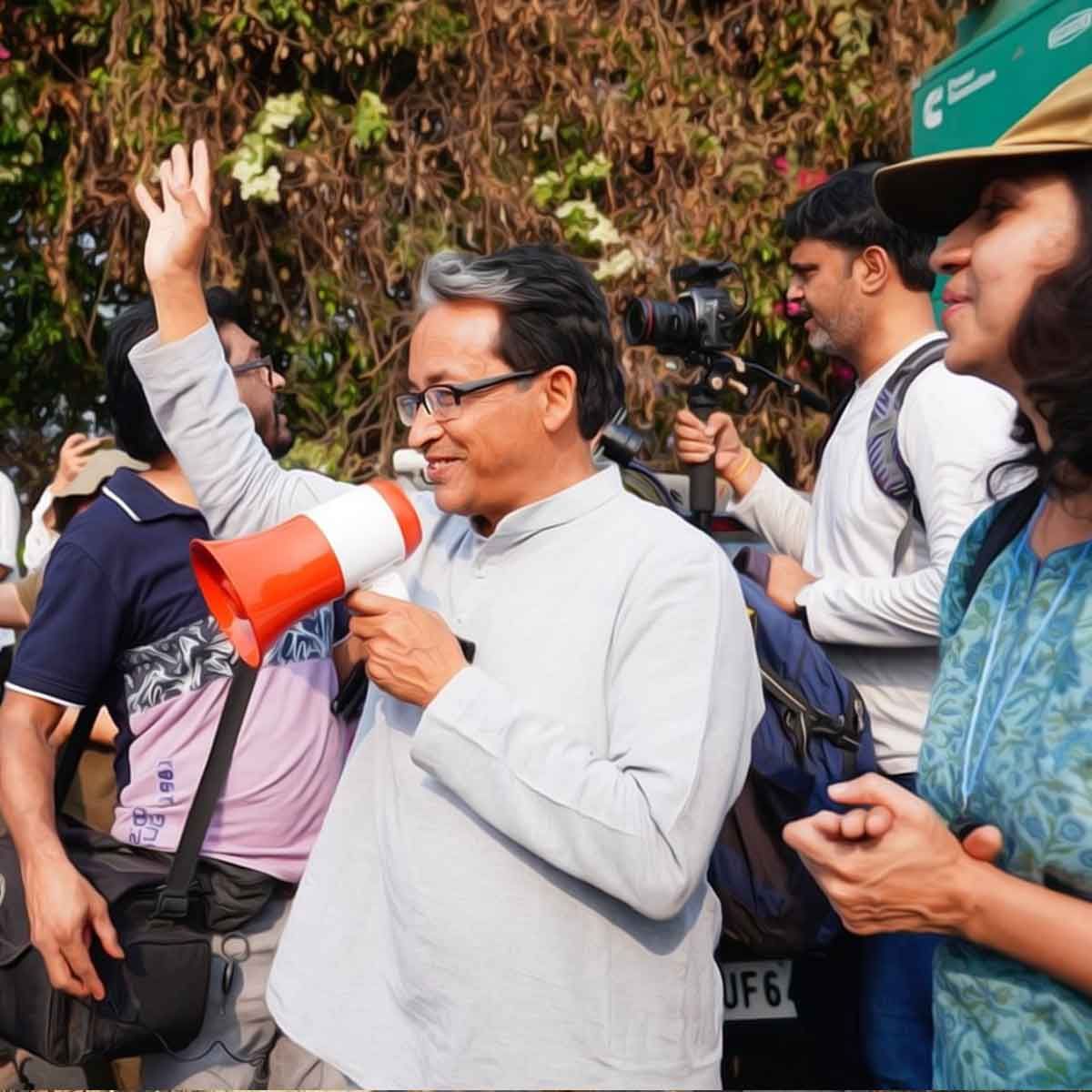More Coverage
Twitter Coverage
Satyaagrah
Written on
Satyaagrah
Written on
Satyaagrah
Written on
Satyaagrah
Written on
Satyaagrah
Written on
JOIN SATYAAGRAH SOCIAL MEDIA
"Best advice I ever received was to give advice only when asked for it": State does not owe loyalty to any one religion and the Constitution requires that religious majority in the country shouldn’t enjoy any preferential treatment, Justice BV Nagarathna
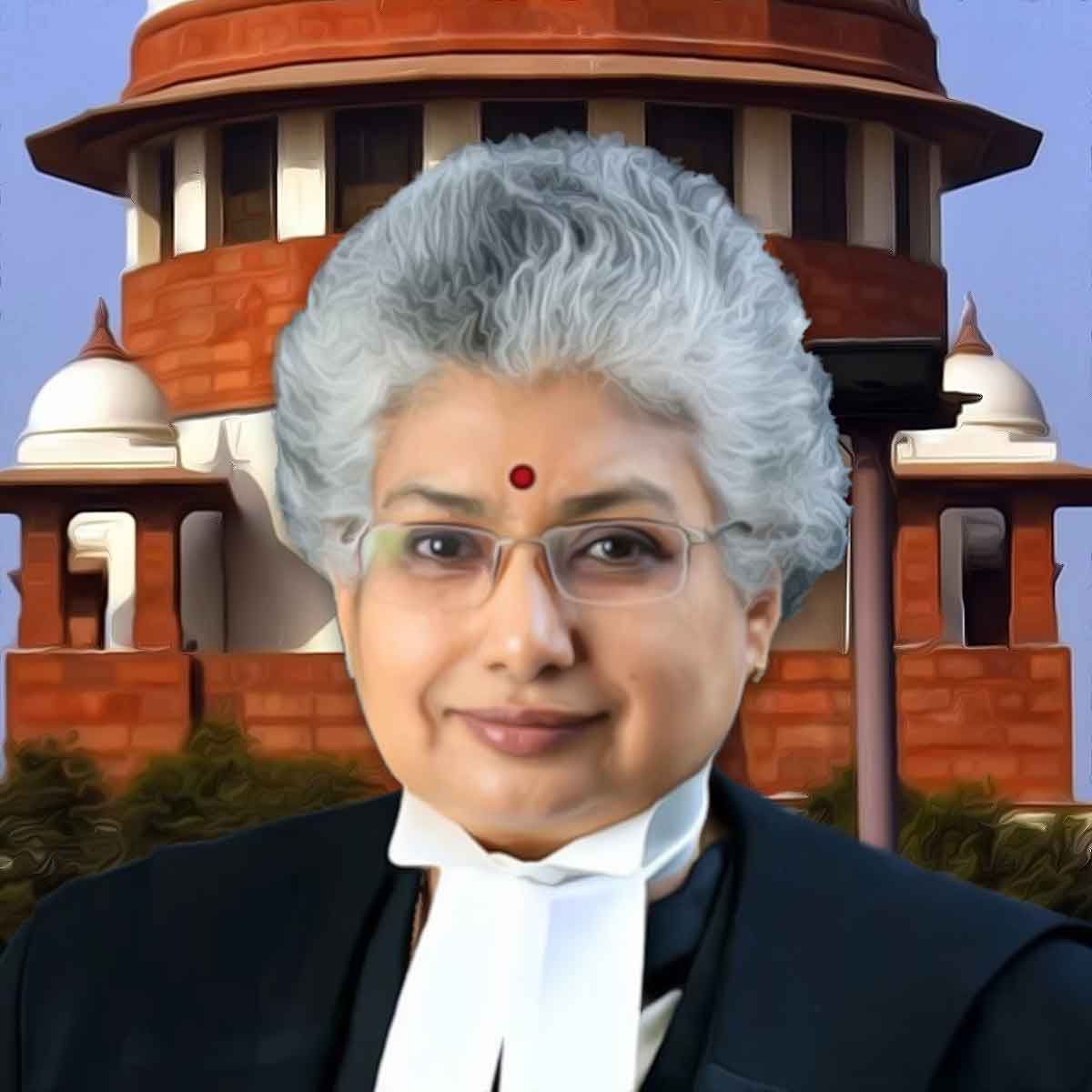
Justice BV Nagarathna, a respected member of the Supreme Court, recently made a notable statement regarding the relationship between the state and religion. In her remarks, she emphasized that the state does not owe loyalty to any specific religion and that the Constitution of India does not permit preferential treatment based on religious majority.
|
The State does not owe loyalty to any one religion and the Constitution requires that the religious majority in the country shouldn’t enjoy any preferential treatment, Supreme Court Judge Justice BV Nagarathna underscored on Tuesday.
“Secularism in the sense that it meant under the Indian Constitution is that the State does not owe loyalty to any one religion. The State equally respects all religions. The vision of the founding fathers was that a nation transcending all diversities of religion, caste and creed; to bring about a new social order based on justice, social, economic and political aspects. The Constitution has sought to establish a secular order under which the religious majority of the population does not enjoy any preferential treatment at hands of the State and religious rights of the minorities are upheld.”
The Judge was speaking at the launch of a Book titled “Constitutional Ideals” organised by DAKSH.
In addition to her views on the relationship between the state and religion, Justice BV Nagarathna also commented on the concept of secularism in India. She pointed out that unlike in Western countries, secularism in India did not arise from a conflict between the State and the Church. Instead, she believes that India's secularism is deeply rooted in its rich history, culture, and the need to accommodate its diverse population.
Justice Nagarathna also expressed her concerns about the lack of integrity and the prevalence of ill-gotten wealth in society. She noted that the fundamental duties outlined in the Constitution aim to foster "ideal citizenship," but unfortunately, the current reality is far from that ideal. She criticized the fact that possession of disproportionate assets is often overlooked or treated lightly in today's society, which undermines the principles of integrity and ethical conduct.
These remarks shed light on the challenges India faces in upholding the values of integrity and combating corruption. They highlight the need for individuals and institutions to prioritize ethical behavior and work towards a society where ill-gotten wealth and lack of integrity are not accepted norms.
Justice BV Nagarathna's critique serves as a reminder that there is still work to be done to achieve the ideals of a just and ethical society. It encourages reflection on the current state of affairs and calls for a collective effort to uphold the principles of integrity and transparency in all aspects of public and private life.
“The essence of fundamental duties is to achieve ideal citizenship. It’s not just the relationship between the citizen and the state and duties of a citizen to the state, it also encompasses duties of one citizen to another. For this, we need to cherish and practise values of the Indian Constitution. Among the constitutional values, integrity is the highest. But alas! With the passing of every year, integrity is losing its value in our total value system. Bribery, corruption and flaunting of ill-gotten wealth has become the order of the day and has been entrenched in Indian society. Disproportionate assets possessed by certain persons, especially by those in public life are hardly thought of as blackmarks in our Indian society.”
Justice BV Nagarathna expressed her concern about the changing perception of affordability in today's society. According to her, the value attached to this concept has significantly diminished over time. In the past, people used to carefully consider their expenses, especially when it came to indulging in luxuries or material comforts. However, she noted that the current situation has undergone a complete transformation.
Justice Nagarathna lamented that the notion of affordability seems to have lost its significance in contemporary times. There appears to be a shift in attitudes towards spending, where people are less cautious about their financial choices and more inclined to indulge in luxuries without much consideration.
|
These remarks shed light on the evolving consumer culture and the potential consequences of a society that places less emphasis on financial prudence. Justice Nagarathna's observation serves as a reminder of the importance of responsible spending and the need for individuals to exercise discretion when it comes to their financial decisions.
Her comments prompt reflection on the evolving values and priorities in today's world, urging individuals to reevaluate their relationship with material possessions and consider the long-term implications of their financial choices. It serves as a call to cultivate a more mindful and responsible approach towards affordability in order to foster a balanced and sustainable society. She said:
“While the country has grown economically, and there's greater generation of income among the people, what is of great worry is disproportionate assets. That is income from other than known sources. We may progress as a nation, economically and socially, claim ourselves to be good citizens, have a great Constitution. But if we lack integrity, what is it at the end?”
Speaking on ‘liberty’, Justice Nagarathna opined that during the initial days, the Supreme Court did not move with the spirit of Chapter III and this changed after a few decades. "They were more cautious and circumspect. The judicial balance was not really tilted completely in favour of the spirit behind Chapter III. But in the subsequent decades, the Supreme Court and the courts in India have interpreted Chapter III in such a way that it has expanded, particularly Article 14 and 21 to include rights of the highest amplitude such as right to bodily integrity, right to die with dignity, right to reproductive choice, right to self-identification of gender, right to privacy”.
Terming Chapter III as an open cauldron, the judge said that it is a space were various rights can be thrown into. "It's not saturated; it's not full. There's a lot of space for the Courts to ensure that many more rights are recognised and for that we require, not only enlightened citizenry but also an enlightened var to assist the courts to merely recognize these rights."
Justice Nagarathna's statement highlights the principle of secularism, which is an essential aspect of the Indian Constitution. Secularism in this context means that the state remains neutral and impartial in matters of religion, treating all faiths equally and with respect.
|
Her statement has sparked conversations and debates about the role of religion in governance and public policy. Some argue that religious majorities should receive certain privileges due to their numerical strength or historical significance. However, Justice Nagarathna's stance challenges this notion, emphasizing that the Constitution does not allow preferential treatment based on religious majority.
Supporters of Justice Nagarathna's position argue that granting preferential treatment to a religious majority would undermine the principles of equality and secularism, potentially marginalizing religious minorities. They believe that the state should ensure equal rights and opportunities for all citizens, regardless of their religious beliefs, in order to foster an inclusive and harmonious society.
Opponents may argue that certain religious communities have unique needs and historical grievances that deserve special attention from the state. They may contend that providing preferential treatment to the majority community is a way to address historical imbalances and promote social cohesion.
This conversation stimulates broader debates about the interpretation of secularism, the role of religion in public life, and the balance between individual religious freedoms and state neutrality. It encourages a critical examination of constitutional principles and invites a deeper understanding of the complexities surrounding religion-state relations in a diverse and multicultural society.
In her remarks, the Judge highlighted the significance of fraternity, which she believes is often the least understood of the four ideals mentioned in the Preamble of the Indian Constitution. According to her, fostering a sense of fraternity is crucial in strengthening democratic values, especially in a diverse society like India where people have religious, linguistic, and other differences. By embracing fraternity, individuals can overcome these differences and work towards a more inclusive and harmonious society.
The event concluded with a discussion centered around a newly-launched book authored by Senior Advocate and Co-founder of Daksh, Harish Narasappa, along with Associate Professor at NLSIU, Bangalore, Aparna Chandra. The book likely delves into important legal and societal issues, providing valuable insights and perspectives for the audience.
The Judge's emphasis on fraternity and the subsequent discussion based on the newly-launched book underscores the significance of promoting unity and understanding in a diverse nation like India. It serves as a reminder of the ongoing efforts needed to bridge gaps and nurture a collective spirit of fraternity for the betterment of society as a whole.
 Support Us
Support Us
Satyagraha was born from the heart of our land, with an undying aim to unveil the true essence of Bharat. It seeks to illuminate the hidden tales of our valiant freedom fighters and the rich chronicles that haven't yet sung their complete melody in the mainstream.
While platforms like NDTV and 'The Wire' effortlessly garner funds under the banner of safeguarding democracy, we at Satyagraha walk a different path. Our strength and resonance come from you. In this journey to weave a stronger Bharat, every little contribution amplifies our voice. Let's come together, contribute as you can, and champion the true spirit of our nation.
 |  |  |
| ICICI Bank of Satyaagrah | Razorpay Bank of Satyaagrah | PayPal Bank of Satyaagrah - For International Payments |
If all above doesn't work, then try the LINK below:
Please share the article on other platforms
DISCLAIMER: The author is solely responsible for the views expressed in this article. The author carries the responsibility for citing and/or licensing of images utilized within the text. The website also frequently uses non-commercial images for representational purposes only in line with the article. We are not responsible for the authenticity of such images. If some images have a copyright issue, we request the person/entity to contact us at satyaagrahindia@gmail.com and we will take the necessary actions to resolve the issue.
Related Articles
- In a case regarding child custody of 11-year-old Kanak, Court orders minor girl to be sent to Nari Niketan: Rajasthan
- "A people that values its privileges above its principles soon loses both": Delhi High Court upheld the freedom of speech privilege of the advocacy profession, Justice Mini Pushkarna even refused to look into irrelevance or maliciousness of the statement
- “If you’re good enough to hit the gym at 70, why not a courtroom?”: Age of retirement of Supreme Court and High Court Judges needs to be increased in sync with increase in the longevity and advancement in medical sciences, Parliamentary Committee
- Controversial Marxist leader Brinda Karat reaches Jahangirpuri to implement Supreme Court order, fanatic Leftist journos outrage over order not being followed immediately and took to Twitter to attack NDMC officials
- Uphaar Cinema fire was one of the worst fire tragedies in recent Indian history: Association of Victims of Uphaar Fire Tragedy (AVUT) filed a landmark case considered a breakthrough in civil compensation law in India
- Supreme Court stays Allahabad HC order to take over land from Mohammad Ali Jauhar Trust: State Govt of UP allotted 400 acres to the Trust that violated the conditions and built a Mosque instead of a university
- Husband submitted that his wife living separately for 10 years, she implicated false 498-A IPC, in which he was acquitted, and prayed for divorce on ground of mental cruelty: Court concurred disputes not serious
- Supreme Court halts Jahangirpuri demolition of illegal encroachments of rioters by NDMC on priority by keeping aside 70,632 pending cases: PIL filed by Jamiat Ulama-I-Hind, Advocate Dushyant Dave, and Kapil Sibal
- In a court case involving rioting, arson, and vandalism during Patidar quota agitation, Gujarat Congress’ president Hardik Patel gets a stay from Supreme Court so he can contest elections: Patel was sentenced to two years in jail
- Notice issued to Central govt on plea challenging the constitutional validity of Waqf Act 1995 by Delhi High Court: Ashwini Upadhyay filed the plea that Waqf Act is antithetical to Secularism in India
- In another shocker, Supreme Court quotes 'every sinner has a future' and commutes death sentence of Mohd Firoz for rape & murder of 4-year-old girl: Child brutally assaulted, two teeth broken while smothering after rape
- Why Hindus not claiming their temples back from the Government control: Is pro-Hindu govt will always be in power
- Plea of MP Navneet Rana and husband MLA Ravi Rana to quash FIR for the gruesome and heinous crime of reciting Hanuman Chalisa outside Matoshree dismissed by Bombay HC: Justices stated that it was devoid of merit
- No evidence to tie Dinesh Yadav to violence, intention assumed based on him being Hindu: Anti-Hindu riots by Muslim community that shook the capital city of India and analysis of the conviction
- "ॐ नमः शिवाय": A Varanasi court allowed carbon dating of the Gyanvapi mosque, located next to the Kashi Vishwanath Temple, Archaeological Survey of India will carry out the scientific survey of the complex, wait of Nandi may be ending soon















